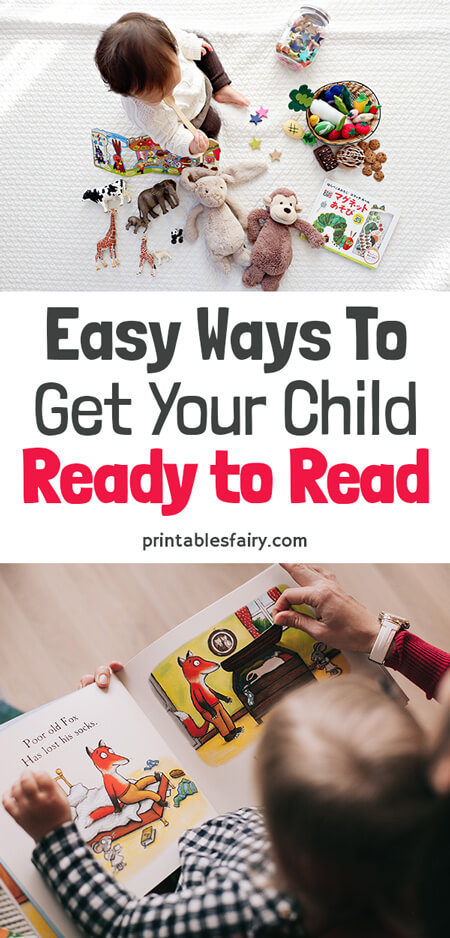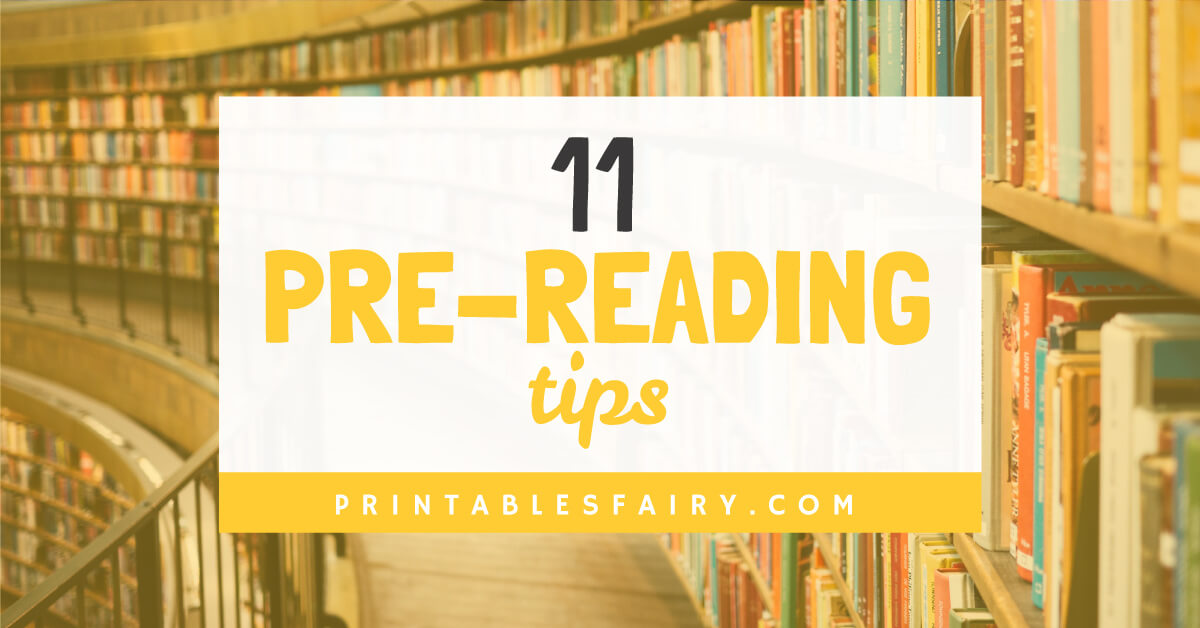Easy Ways to Get Your Child Ready to Read
When kids start reading, a brand new and exciting world opens up to them.
Learning new words and having an extensive vocabulary is the most important thing for children to learn to read.
Below we will explore some pre-reading tips to prepare children to read.
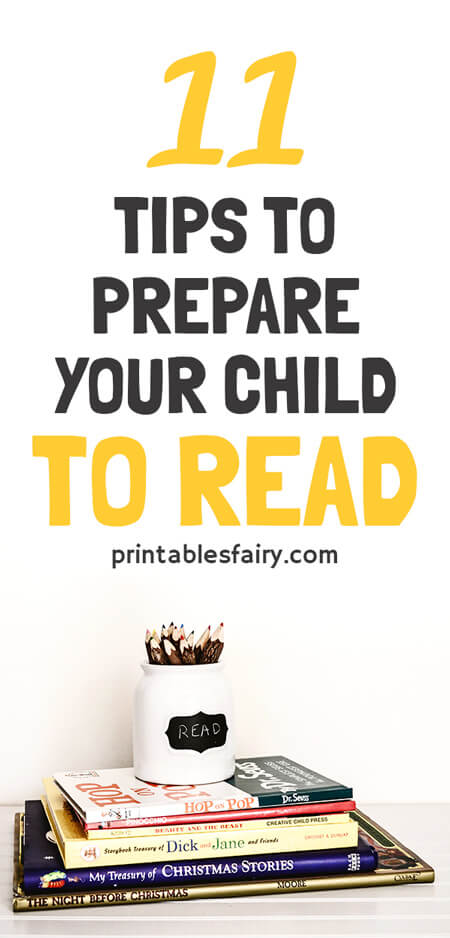
Did you know that by age 4 your kid might know an average of 5000 words? And by age 6, around 13000 words?
Yes! Your kid understands more words than he can pronounce.
And you might wonder, why is it so important? Well, vocabulary knowledge is the best help for kids learning to read.
According to this research, oral vocabulary knowledge not only helps with reading comprehension but also, helps children to identify written words that they have never seen before.
Here, we will explore 11 ways to help your preschoolers learn more vocabulary and start loving to read
Remember to always show how exciting it is to read a new book and encourage them to choose books they find interesting. This is important because your children will enjoy books and will want to read them if you do too!
11 PRE-READING TIPS
1. Get your hands on Children’s Poems
Start doing it as soon as possible. It’s recommended
This way, kids learn rhymes and sounds that will be very helpful when they start reading. Try to modulate your voice, make it fun and let them join you.
2. Talk with your kid
Your kid learns hundreds of words just by listening to you. Talk about family, friends, places, birds singing outside; talk about anything you want!
3. Use flashcards
Flashcards are a great resource to learn. You can cut pictures from magazines or old books to make your own.
Teach your kids the name of things and let them describe what they see in the flashcards by making a lot of questions like:
- What is happening here?
- Do you think it is fun or boring? Why?
- Would you like to be there?
- What’s the color of this?
- How many people do you see?
Reading images is a skill that will help them read words in the future.
4. Let your older kids read to your younger kids
This activity is beneficial for both. Your younger child will learn vocabulary and your older child will practice reading
5. Creative & imaginative play
Playing allows your kid to learn new words and acquire knowledge and understanding of different things
Let your child play with other kids, alone and with you.
Stimulate your child’s imagination through play pretend games and don’t be afraid if he has an imaginary friend, sometimes this happens if they don’t have other kids to play with.
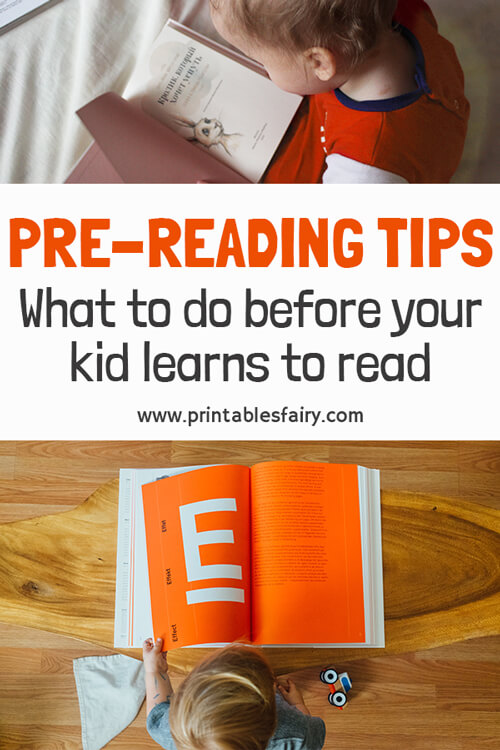
6. Let your kid watch TV
There are many TV shows for preschoolers nowadays. Your kid can learn the meaning of many words by watching these shows.
Don’t force you child to watch a TV show that he doesn’t like, instead, talk about how fun is the show and its characters; if your kids see that you are having fun with this show, they might want to join you and have fun too.
7. Talk about their drawings
Little kids don’t need to be taught how to draw.
When they show you their drawings, don’t fix them nor ask them What is this?, instead, celebrate any drawing and say something like Tell me more about your drawing. This way, you encourage your kids to speak and express what they feel.
8. Be a role model
Children learn from their parents because they learn by imitating adults. They will hear the words you use, the way you speak and do the same. Try to use complete sentences so that your children understand the meaning of new words.
They will also notice how much you read and appreciate your books, show them that reading is a fun and useful activity. Save a moment every day to read with your kids.
9. Encourage them to ask questions
I know that the number of questions a kid can make
If you don’t know an answer, try to find it by reading books or looking on the web with him.
10. Sing and listen to music
Your kid learns words and meanings through songs and music.
Let your kids watch family-friendly musical tv shows and join them when they are singing along to their favorite songs
Talk about those songs afterward to show them how important it is to you.
11. Let them help you
Let your kid participate in your daily activities, like housework or grocery shopping. Explain what you are doing and give short instructions. This way, kids acquire experiences that will help them understand the experiences told in books.
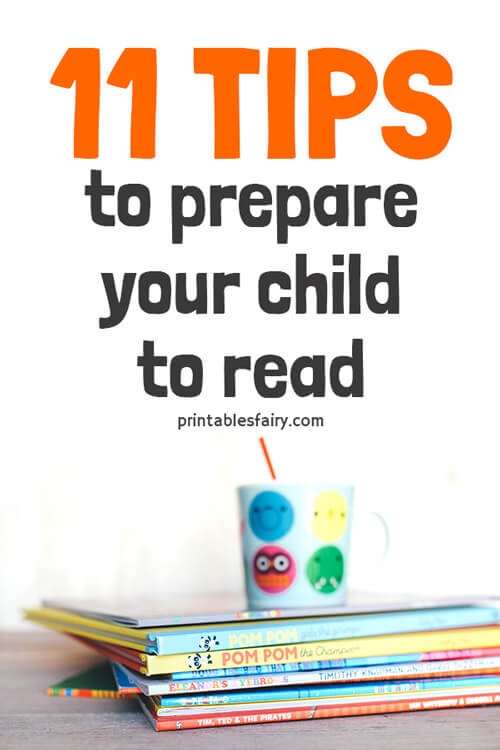
Remember that you can’t teach your child new words, without taking into consideration other factors that can also influence the development of language skills:
- Their emotional growth: what they think about themselves and what they think about those around them.
- Their physical health: vision problems or not eating properly.
Children can’t develop language skills without the help of their parents. Use your daily living experiences as the main resource to teach your kids, they will benefit from this practice and when the time comes, they will go to school and be successful readers.
You can use the Reading Challenge to start exploring books with your kids and make it a fun activity for them. Start with books without words and others with simple phrases. Then, use those stories as a pinpoint to do other activities.
Apply one or all these pre-reading tips and you will have a successful reader in the future!
